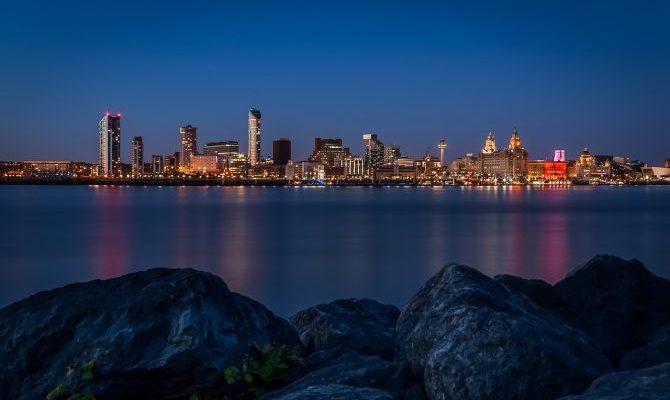COVID-19: The view from the North West
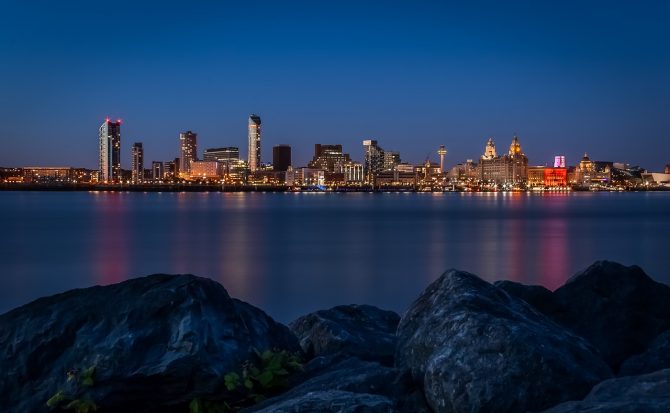
Liverpool waterfront seen across the river Mersey.
Our fight against COVID-19 continues.
We can see the evidence across the country that the lockdown has been successful in bringing down rates of infection. In the North West of England however, we still have areas with rates coming down slower than others.
We know that we have been here before. We must make sure we don’t see history repeating itself coming out of this lockdown.
The situation in our hospitals is still very challenging. We still have high rates of hospitalisations in the North West. While the number of patients in our hospitals is decreasing and now lower than it was at the April peak, the rate of decline in the North West is still notably slower compared to other regions. Critical care in the North West remains under exceptional levels of pressure. The NHS is still there for those who need it, but by reducing COVID-19 transmission we can all play our part in relieving this pressure and enable NHS services to get back to normal.
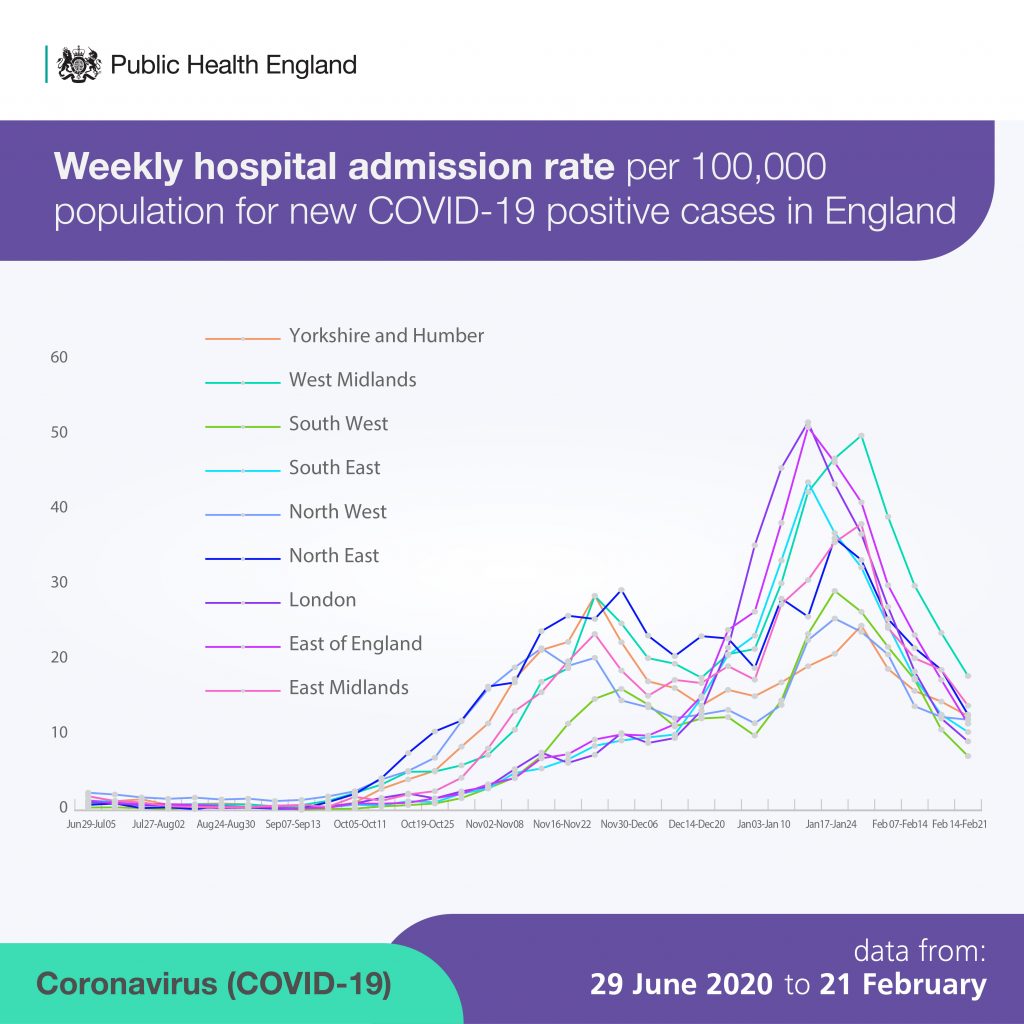
We still have challenges ahead of us.
Throughout this pandemic the North West has experienced considerable challenges and loss. Due to a variety of factors; a combination of social deprivation, disadvantaged communities, health inequalities and social issues the NW is a challenging public health environment.
The NW has seen the second highest cumulative number of COVID-19 cases in England (only London has seen more) and as the second wave of the pandemic started to hit, the NW experienced the UK’s highest daily number of cases. We have also had the second highest numbers of deaths per region during the course of the pandemic – second only to the South East. We also have the highest proportion of residents on the NHS shielding list.
The roadmap published last week by the Government, is rightly a cautious one. The challenge of lockdown easing is now upon us and we know we have to do this safely and most importantly slowly. We know how quickly infections and deaths can rise when we let our guard down and let the virus spread.
A complex picture
Rates in the North West have been a complex picture during the course of this pandemic. We came out of the first lockdown with significantly higher rates than other areas and with that came considerable challenges in getting those rates down.
In some areas stubborn rates remained at a high level and we saw elevated rates of community transmission in areas such as Blackburn with Darwen, Oldham and Rochdale who were some of the first areas in the country that faced additional restrictions from July onwards.
We faced ongoing challenges with significant outbreaks, continued high rates across the North West and prolonged levels of restrictions for a huge proportion of our communities.
Our latest weekly surveillance report shows the NW is currently middle of the pack for case rates and you can clearly see where we were pre lockdown and coming out of the Christmas period.
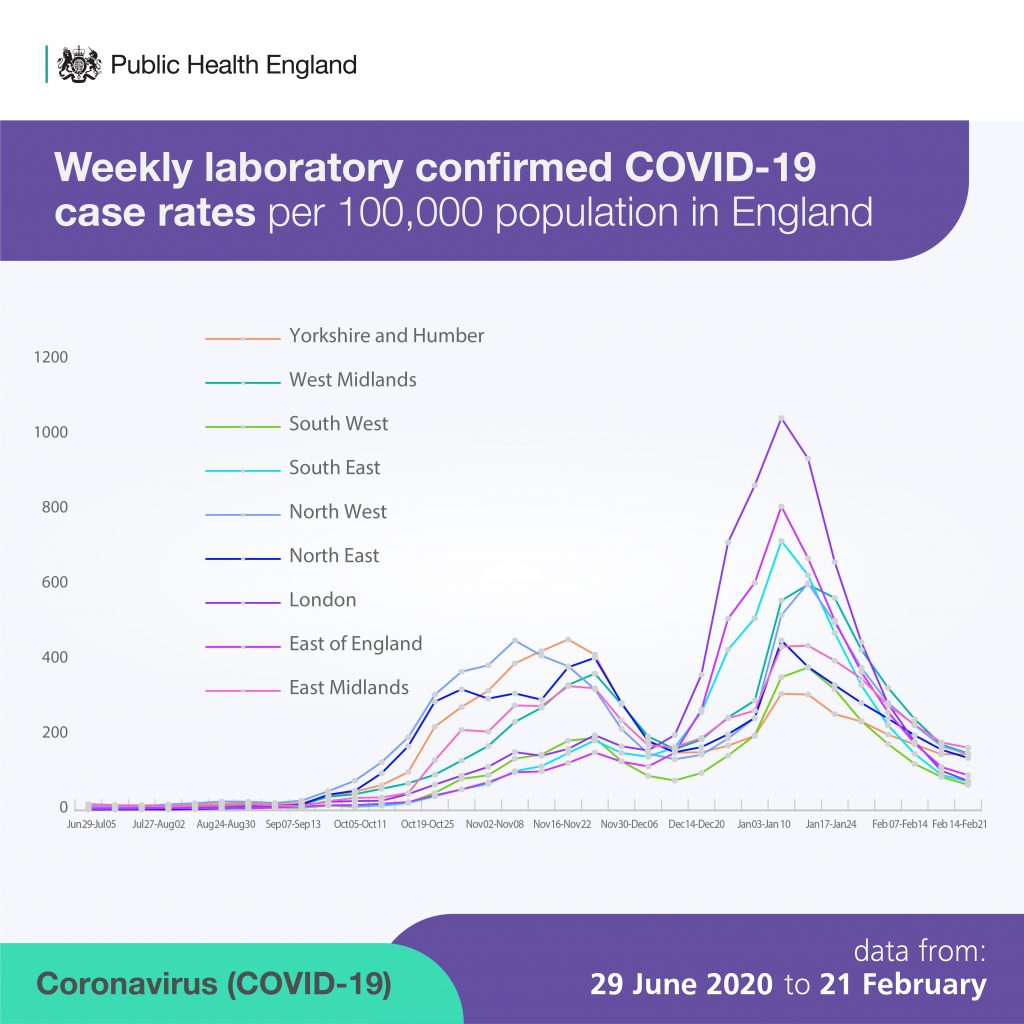
Key learnings from the NW experience so far
- We have to go slow. As we know from previous experience, if we rush this too soon, we will be right back to where we have been before with rising rates in our communities.
- We need to work together. There has been dedicated and sustained action over this past year with our PHE colleagues working alongside partners including our public health teams in Local Authorities and our NHS colleagues to respond to this unprecedented event. We could not do this without each and every one of our partners.
- Community engagement is vital. The role played by local community, faith and voluntary sector leaders and organisations has been essential and remains so as we encourage everyone to accept the offer of vaccination.
- The nature of the economy in the North West means that many people need to leave their home to do their job. This makes it even more important that those of us who can work from home do so.
The look ahead
We are coming into spring, there is optimism in the air with warmer weather, lighter evenings and really positive data on vaccination effectiveness published by PHE.
The vaccine rollout is continuing and here in the North West nearly 2 million vaccines have been given which is a fantastic achievement for everyone involved. We would urge anyone eligible to take up the offer when they are contacted. Even if you have been vaccinated, it is really important that you continue to act like you have the virus, practice good hand hygiene and stay at home.
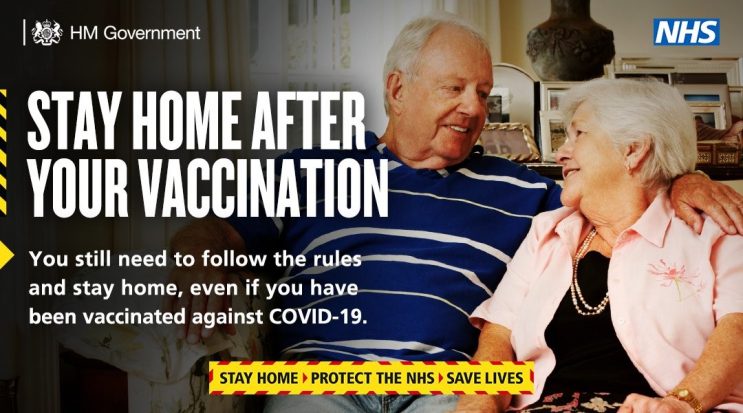
PHE is also monitoring data about emerging variants very closely and where necessary public health interventions are being undertaken, such as extra testing and enhanced contact tracing as seen in parts of the North West already.
We are all in this together
This period has been incredibly tough on us all and it has cost us so much, but this virus is far from beaten and we have to keep doing the simple things that save lives.
The principles for how we keep transmission low have not changed. As restrictions ease it will be more important than ever to follow the measures. The simplest way to do this is to wash your hands frequently, wear a face covering and keep your distance from others.
Above all else, if you have COVID-19 symptoms you must self-isolate in line with published guidance and get a test.
By keeping our contacts low, we reduce the number of opportunities for the virus to spread. This is hard I know. We all thrive on human contact. We all want to get our lives back as close to normal as possible, it will take time and we all have a part to play.
We will get there. Together.
View original article
Contributor: Andrew Furber

